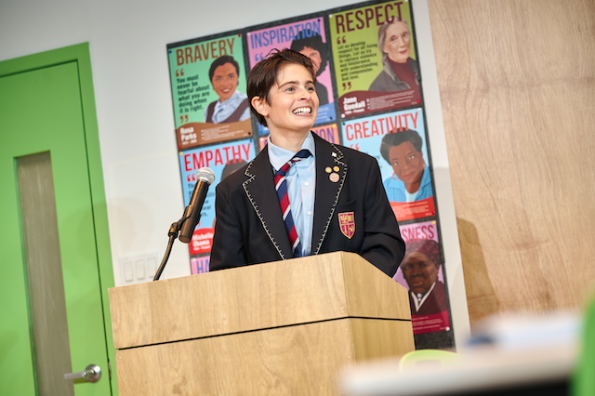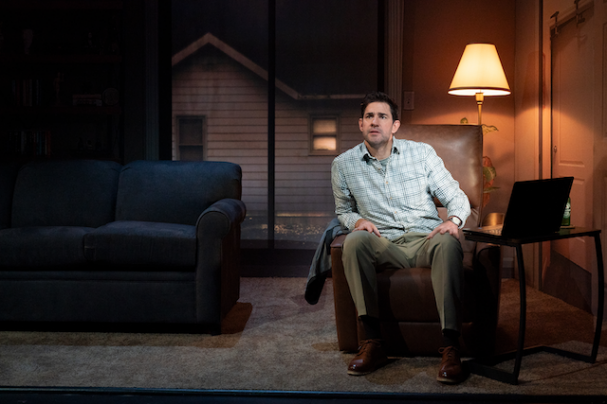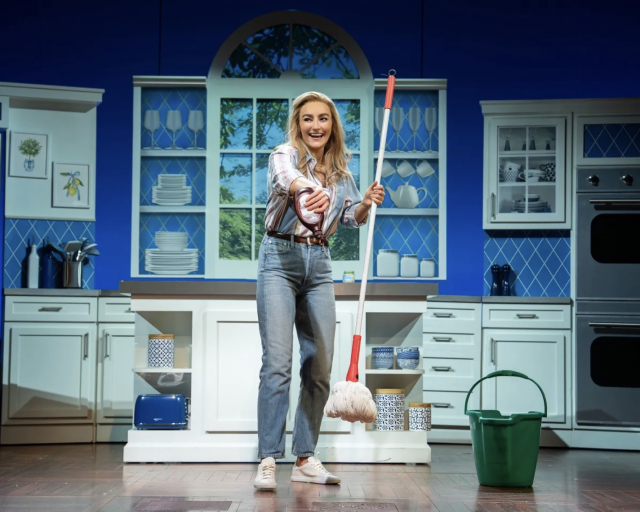
Chloë Grace Moretz, River Lipe-Smith (Photo: Emilio Madrid)
Caroline
By Carol Rocamora
Don’t be misled by the title of Caroline, the remarkable new work by Preston Max Allen now playing at The Robert W. Wilson MCC Theater Space. It refers to a nine-year-old who has chosen that name for her new identity – as a girl. She announces her choice to her mother in the play’s first scene, while sitting in a diner in Ohio, eating pancakes.
Yes, of course, Caroline is about the topic of trans-identity... ostensibly. And we never doubt its prominence, as represented by the amazing River Lipe-Smith, who plays the title role with assurance and confidence in her life choice.
But it is about much more. Trans-identity is a catalyst for one of the most powerful plays I’ve seen in years about family and the dynamics between its members – specifically, mothers and daughters.
Maddie, Caroline’s mother, (Chloë Grace Moretz) is driving her daughter on a road trip to Evanston, Illinois from West Virginia, where her ex-cop boyfriend, in a fit of rage, has broken Caroline’s arm. Maddie has decided to seek refuge with her affluent parents – a daunting choice, since she hasn’t seen them in a decade. A drug addict and alcohol abuser at the age of fifteen, Maddie robbed her parents and fled home. Since then, however, she’s rehabilitated herself, maintaining sobriety for eight years, holding a steady job at PetSmart, and raising Caroline. But now Maddie needs to start a new life in a place where her daughter will be safe, and hopes to appeal to her parents for funding to support Caroline’s healthcare as trans.
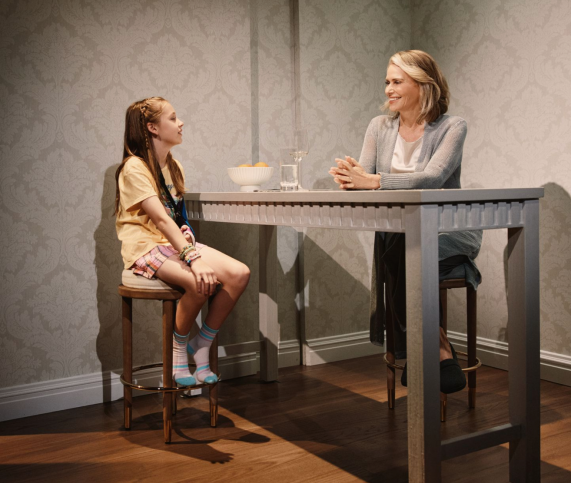
River Lipe-Smith, Amy Landecker (Photo: Emilio Madrid)
What constitutes the drama of this powerful, suspenseful, three-character play is the series of interactions between mother and daughter – that is, between Maddie and her daughter Caroline, and Maddie and her mother Rhea (Amy Landecker). As played with strength and conviction by Chloe Grace Moretz, Maddie is, from the very first scene, a mother who has learned to listen to her daughter and actually learn from her. Caroline is a clear-eyed, intelligent, articulate child, aware of the challenges she’ll be facing as trans. As Maddie listens and Caroline questions, it’s clear that their bond – built on love, mutual respect, and understanding – is indestructible.
In sharp contrast to the Maddie/Caroline dynamic is the interaction between Maddie and her mother Rhea. From the moment Maddie and Caroline enter her house, it’s clear that Rhea, traumatized by the past, is deeply mistrustful of the abusive daughter she hasn’t seen in over a decade. The tension between them escalates to the play’s penultimate scene, when, in response to Maddie’s plea for support and a second chance, Rhea makes the offer that she and Maddie’s father have decided upon (by telephone; the father is away on a business trip). That offer stipulates that Caroline will live with her grandparents, who will assume control over her and support her until she’s eighteen – while Maddie (who will have to live elsewhere) will be permitted to visit her daughter Caroline on weekends.
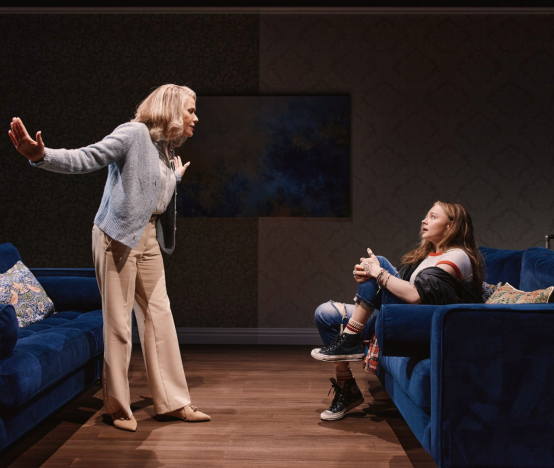
Amy Landecker, Chloë Grace Moretz (Photo: Emilio Madrid)
Consistent with her admirable ability to listen to her daughter and respect her life choices, Maddie presents the grandparents’ offer to Caroline, and asks for her opinion. Caroline’s response is one of the most beautiful, life-affirming moments in this deeply moving play, directed with clarity and sensitivity by David Cromer on Lee Jelinek’s spare set.
Caroline is a play about the mistakes one makes in one’s past. It asks a question: is one defined by them? Maddie’s quest is to move beyond her mistakes and start a new life. However, her mother Rhea – trapped in her generation and class, as well as in the past – can’t accept that. Ultimately, this is a play about listening, making mistakes, seeking second chances… and love. Above all, it’s about acceptance (as distinguished from forgiveness): accepting one another’s humanity and moving on. Maddie has unquestionably accepted Caroline’s chosen identity, but Rhea is unable to accept and support her own daughter Maddie’s new direction in life.
Having just seen Liberation on Broadway the night before I attended Caroline, I’m struck by the power of both of these works, playing simultaneously, that deal with the nature of mother/daughter relationships. In contrast, many of the great dramas of the 20th century American theatre have focused on father/son relationships – notably Tyrone and his sons Jamie and Edmund in O’Neill’s Long Day’s Journey into Night; Willy Loman and his sons Biff and Happy in Miller’s Death of a Salesman, and Troy Maxson and his son Cory in Fences.
With Bess Wohl’s Liberation and Preston Max Allen’s Caroline, both powerful new plays, we are moving in the direction of a broader understanding, compassion and humanity. We have these insightful dramatists to thank for enlightening us.
At The Robert W. Wilson MCC Theater Space
511 W 52nd St.
90 minutes, no intermission
Through November 16 2025

